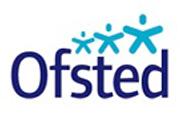Numeracy is the key facet to success, says Ofsted report

A report released today by Ofsted concludes that numeracy “is central to success at work and educational progress”.
The report highlights the key features of good practice and identifies the most common weaknesses of poor numeracy provision seen by inspectors during visits to colleges and to sessions held in the workplace, community settings and prisons.
According to the findings, effective numeracy teaching when built into practical training can make a real difference to young people and adults in their work and personal lives.
However, weak numeracy provision focused on worksheets and repetitive exercises can leave young people and adults failing to understand mathematical concepts and make them incapable of applying their learning in their everyday lives.
John Widdowson, principal and chief executive of New College Durham, said: “Confidence in numeracy is essential to any student, whatever their course.
“Although some students may find acquiring and practising these skills a challenge, but by working together in a supportive environment, effective teaching can guide even the most uncertain learner to success.”
In response to the Ofsted report, NIACE’s director of development and research, Carol Taylor, said: “The report highlights good practice amongst post-16 providers, showing that young people and adults learn best, and retain their skills most effectively when numeracy is built into real-life contexts, and concepts are understood and not learnt by memorising rules.”
NIACE believes that the future of the country depends on adults having the right
numeracy skills, which would help the economy recover from the recession, and is calling for a radical step change in how the UK addresses adult numeracy learning.
“Adult numeracy skills in this country are poor, too much provision focuses on whole qualifications and teaching to the test, what we need are short, bite-sized courses that build on what adults already know, are relevant to what they want to learn and are well taught,” added Mrs Taylor.
According to NIACE, the government needs to focus support over three key things:
– developing embedded numeracy curricula and resources.
– mandatory Continuous Professional Development for all post-16 teachers to learn how to best support the numeracy needs of adults.
– ensuring all teachers leave Initial Teaching Training able to support the development of numeracy skills.
The Ofsted report also discusses young people’s fear of maths, and how they can struggle to understand mathematical concepts. And it shows how important maths could be for their future and the difference good teaching and learning numeracy skills could make to their lives.
NIACE supports the solutions offered by the report that, by setting mathematical problems in work-related contexts and by using well-designed practical tasks and group work, young people and adults can overcome the barriers to numeracy.
Gordon MacLennan, director of curriculum and quality at Apprenticeship Training Ltd (ATL), also supports the Ofsted report, saying: “By investing in specialist training materials and by engaging learners in both classroom and workshop numeracy activities ATL has been able to boost the numeracy skills and confidence of young people and secured a 100 per cent pass rate for Key Skills qualifications, including numeracy.”
Inspectors judged ATL to be outstanding at tackling the challenge of ensuring that young people and adults gain the numeracy skills they need for their
careers and personal lives.
Aastha Gill






Responses